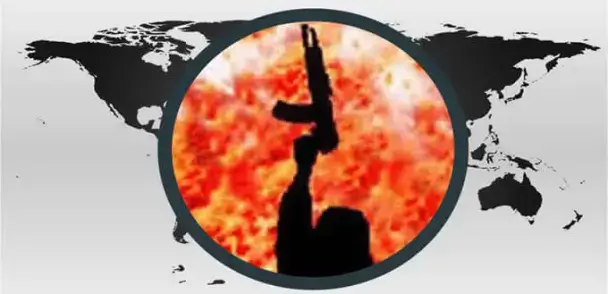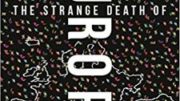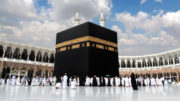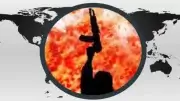Suzanne Bowdey | The Washington Stand
As more hostages walk out of their underground jail to freedom, the rosy picture of Hamas’s “gentle” treatment is starting to unravel. While 85-year-old Yocheved Lifshitz praised her captors back in October for the regular food, medical care, and beds, others tell a different story. Twelve-year-old Eitan Yahalomi was “tortured during his confinement,” his grandmother says — “beaten, forced at gunpoint to watch videos of Hamas atrocities, and threatened with death when he and other children cried.” Left by himself in darkness for 16 days, Eitan has trouble speaking now.
Nine-year-old Emily Ward, whose dad made headlines for his profound relief that she was thought dead and not in terrorists’ hands (only to learn his worst fears had come true), tells reporters that he has trouble hearing her since her release. After bear-hugging the daughter he thought was gone forever, Thomas admitted, the “most shocking, disturbing part of meeting her was she was just whispering. I couldn’t hear her. I had to put my ear on her lips, like this close and say, ‘What did you say?’”
The full picture of nightmares, we may never know. But, as former Israel Defense Forces (IDF) major Amir Tsarfati points out, we know enough. These were “unspeakable crimes against humanity,” he insisted, “… performed by bloodthirsty people that have no regard [for] human life and have no intention to have any peace with us at all. … And Israel, for the longest time, tried to appease them by giving them jobs within Israel, by allowing money to flow in — but this monster rose one morning and tried to devour us.”
Now, Tsarfati warns, “We’re facing right now a battle between two things. One, we have the largest terror base on planet Earth [in Hamas] — and in the north, we have the largest or the strongest terror organization on planet Earth [in Hezbollah]. We’re sandwiched right in between them,” he explained on “Washington Watch.” And, as Family Research Council President Tony Perkins pointed out, Israel isn’t exactly a big parcel of land. “No,” Amir agreed. And after October 7, the country has started to realize, “there is no way we can live like that even a day longer, right? So we are doing what we should have done long ago, and we didn’t because of [international] pressure.”
But that pressure is building again, Perkins said, even from America. “The Biden administration pushing for this quote-unquote ‘pause’ [has] stopped Israel from taking care of business.”
And what’s happening as a result, Tsarfati asked?
“The Israeli troops in Gaza are seeing, watching, looking at Hamas terrorists regrouping and reorganizing. Right now. We say we cannot shoot them, but we see what they’re planning for us — and once this pause is over, [the threat] is far greater than what we had with them before. This was a terrible mistake to stop right now.”
In the meantime, Amir insists, “What happened on October 7 has caused a tectonic shift of many plates in many levels all around the world. And we’re watching it happen.” From the protests to counter-protests, “a lot of countries are now dealing with built-in anti-Semitism that they’ve had for many years. And now it’s rising.” Ultimately, he knows, “they have to choose [between] Jewish people that we know are not posing any harm for our country versus those Muslim migrants. … They’re afraid of them. They’re afraid of them in France. They’re afraid of them in Belgium… in the Netherlands.”
For years, Jews have been under the impression that they could co-exist with the foes who want to eliminate them. “No, no, no,” Tsarfati repeated. “We have to live without that enemy on the other side.” But also, he points out, Jews are waking up to the reality that “there is no safe place for them as Jews than Israel.” Ironically, the Jewish people have been among the most liberal voices in America and in Western Europe, Amir pointed out. “And right now, they see that being liberal is not enough. Being progressive is not enough. They hate me for being a Jew, right?”
It’s created a very explosive environment for the West, which is facing some very pivotal decisions.
“I believe God is testing the nations right now,” Amir insisted. “He’s testing the nations. He’s testing the believers, His people, [on where they stand with Israel]. … Look, when I began to travel around the world, God showed me, ‘Wherever you go, look at what they teach about Israel, and you will know the spiritual state of that church,’ because it’s like a litmus test. It’s amazing.”
But it’s not just Israel in the crosshairs, Tsarfati urged. It’s Christians too. “Those terrorists always say, ‘The Saturday people are first. The Sunday people are next.’ They use that term. They don’t even hide it. And I mean, Europe must wake up. America must wake up. America has thousands of sleeping cells all across the country. Your southern border is so open,” he shook his head. “I can’t even imagine how many Hezbollah and Hamas cells are in your country right now. They’re testing you. And look, they waited and waited and waited and deceived us and deceived the whole area that they’re deterred and not going to [pounce]. And then boom, one day they strike.”
“I hope Americans are going to wake up to understand that you are in a crisis right now,” Amir cautioned. And if this country is going to survive, “… you know what you need to do [next] November.”
Suzanne Bowdey serves as editorial director and senior writer at The Washington Stand.
SOURCE: THE WASHINGTON STAND





